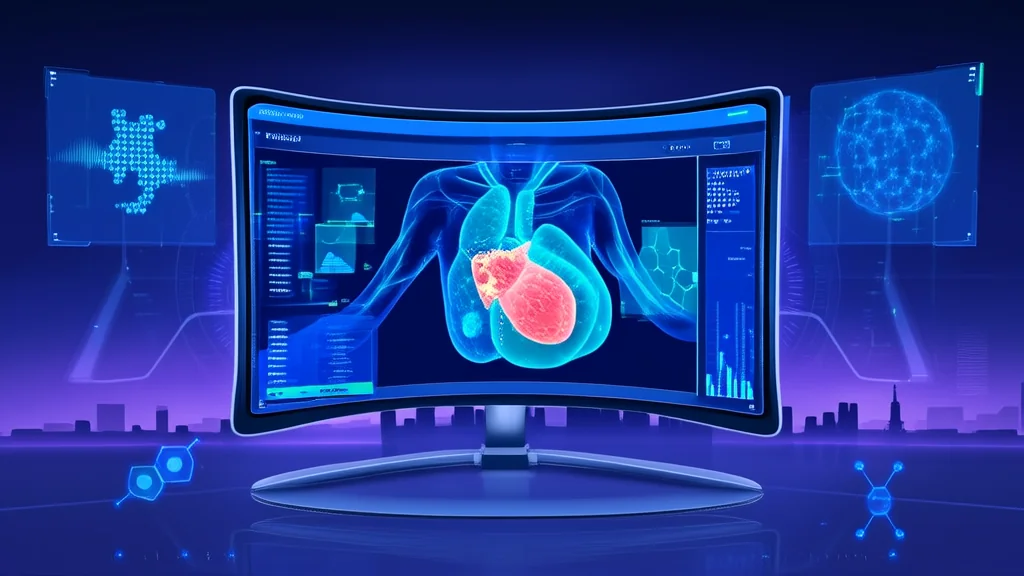The Impact of AI: Transforming Industries and Everyday Life
As we continue to witness the rapid evolution of artificial intelligence (AI), it's clear that this technology is not just a futuristic concept but a present-day reality. From revolutionizing healthcare and finance to enhancing our daily lives, AI is making a tangible difference. In this blog post, we'll explore some of the most impactful and practical applications of AI, focusing on real-world examples and their implications.
AI in Healthcare: Revolutionizing Patient Care and Diagnostics
One of the most transformative areas for AI has been healthcare, where it is improving patient outcomes and streamlining operations. For instance, Google Health has developed an AI-powered tool that can detect breast cancer with 11.5% fewer false positives and 29% fewer false negatives compared to traditional methods. This means more accurate diagnoses and better treatment plans for patients.
Practical Impact: The tool has already been implemented in several hospitals across the United States, leading to earlier detection and improved survival rates. For example, at the University of California, San Francisco, the AI system helped identify cancer in 10% of cases that were initially missed by human radiologists.
Future Implications: As AI continues to evolve, we can expect even more precise and personalized medical care. This could lead to a significant reduction in healthcare costs and a more efficient use of medical resources, ultimately benefiting both patients and providers.
AI in Finance: Enhancing Security and Customer Experience
In the financial sector, AI is being used to enhance security, improve customer service, and optimize operations. JPMorgan Chase has implemented an AI-driven fraud detection system called COiN, which reviews legal documents and extracts important information. This system has reduced the time needed to review loan agreements from 360,000 hours to just a few seconds, significantly improving efficiency and accuracy.
Practical Impact: COiN has not only saved the bank millions of dollars in labor costs but also reduced the risk of errors and fraud. This has led to a more secure and reliable financial environment for customers, who can now trust that their transactions are being handled with the highest level of scrutiny.
Future Implications: As AI becomes more integrated into financial services, we can expect to see more personalized financial advice, enhanced cybersecurity measures, and faster, more accurate processing of transactions. This will not only benefit large institutions but also small businesses and individual consumers.
Consumer Tech: AI-Enhanced Personal Assistants and Accessibility Tools
AI is also making a significant impact on consumer technology, particularly in the form of personal assistants and accessibility tools. Amazon’s Alexa has become a household name, offering users a wide range of features, from setting reminders and playing music to controlling smart home devices. Recently, Amazon introduced a new feature called "Alexa Guard," which uses AI to detect sounds like breaking glass or smoke alarms, alerting homeowners and emergency services if necessary.
Practical Impact: Alexa Guard has already been credited with saving lives and preventing property damage. For example, in one incident, the system detected a fire in a user's home and alerted the local fire department, allowing them to respond quickly and prevent a potential disaster.
Future Implications: As AI continues to advance, we can expect to see even more sophisticated and intuitive personal assistants. These tools will not only make our lives more convenient but also safer and more accessible, especially for individuals with disabilities or the elderly.
Social Impact: AI in Environmental Conservation and Ethical Considerations
AI is also playing a crucial role in addressing social and environmental challenges. Microsoft’s AI for Earth program, for example, is using AI to monitor and protect wildlife, track deforestation, and predict natural disasters. One of the projects, called PAWS (Protection Assistant for Wildlife Security), uses machine learning to predict poaching hotspots and optimize patrol routes for rangers, leading to a 30% reduction in poaching incidents in protected areas.
Practical Impact: PAWS has been implemented in several countries, including Cambodia, Uganda, and Malaysia, where it has helped to protect endangered species such as elephants, rhinos, and tigers. By reducing poaching, these efforts are contributing to the preservation of biodiversity and the health of ecosystems.
Future Implications: As AI technologies continue to develop, they will play an increasingly important role in solving global environmental issues. However, it is also essential to consider the ethical implications of AI, such as data privacy and bias. Initiatives like Microsoft’s AI for Earth are setting a positive example by ensuring that AI is used responsibly and for the greater good.
Conclusion
From healthcare and finance to consumer tech and environmental conservation, AI is transforming industries and improving our daily lives. These practical applications demonstrate the real-world impact of AI, highlighting its potential to solve complex problems and create a better future. As we move forward, it is crucial to continue exploring and implementing AI in ways that benefit society while also addressing the ethical and social considerations that come with this powerful technology.
